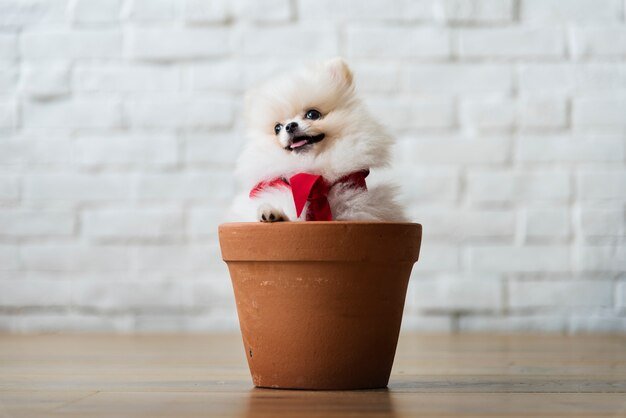Teacup dogs have surged in popularity due to their diminutive size and endearing appearance. Often weighing under 5 pounds, these tiny companions are sought after by many prospective pet owners. However, before searching for “teacup dogs for sale near me,” it’s crucial to understand what teacup dogs are, the potential health concerns associated with them, and the ethical considerations involved in their breeding.
Understanding Teacup Dogs
The term “teacup dog” refers to dogs that are bred to be exceptionally small, typically weighing between 2 to 5 pounds when fully grown. Common breeds that are bred in teacup sizes include:
- Chihuahua
- Yorkshire Terrier
- Pomeranian
- Shih Tzu
- Maltese
- Poodle
These breeds are often selected for their small size, making them popular choices for those seeking a compact companion.
Health Concerns Associated with Teacup Dogs
While teacup dogs may appear charming, they are often prone to several health issues due to their size and the breeding practices used to achieve it. Common health problems include:
- Hypoglycemia (Low Blood Sugar): Teacup dogs have a higher risk of developing low blood sugar, which can lead to weakness, seizures, and even death if not managed properly.
- Respiratory Issues: Their small size can lead to breathing difficulties, including tracheal collapse.
- Heart Conditions: Teacup dogs are more susceptible to heart diseases, which can significantly impact their quality of life.
- Bone Fragility: Their bones are more fragile, increasing the risk of fractures from minor accidents.
- Dental Problems: Due to their small mouths, teacup dogs are prone to dental issues, including gum disease and tooth loss.
Ethical Considerations in Breeding Teacup Dogs
The breeding of teacup dogs raises significant ethical concerns. To achieve the desired small size, breeders often select the smallest dogs from a litter, known as “runts.” This practice can perpetuate genetic defects and health problems. Additionally, some breeders may engage in unethical practices, such as underfeeding puppies to stunt their growth, leading to severe health complications.
Finding Teacup Dogs for Sale Near Me
If you’re considering adding a teacup dog to your family, it’s essential to approach the process with caution and thorough research. Here are some steps to guide you:
- Research Reputable Breeders: Look for breeders who prioritize the health and well-being of their dogs over size. Ensure they provide health clearances and are transparent about the potential health risks associated with teacup dogs.
- Consider Adoption: Many shelters and rescue organizations have small dogs available for adoption. Adopting a dog not only provides a loving home to a pet in need but also helps reduce the demand for unethical breeding practices.
- Evaluate Health Risks: Be prepared for the possibility of health issues and the associated veterinary costs. Ensure you have the resources and commitment to provide the necessary care for a teacup dog.
- Check Local Listings: Platforms like OLX Pakistan occasionally have listings for teacup dogs. However, exercise caution and verify the credibility of the seller before making any decisions.
Comparison of Common Teacup Dog Breeds
To assist you in making an informed decision, here’s a comparison of some popular teacup dog breeds:
Teacup Chihuahua
Weighing between 2 to 4 pounds, Teacup Chihuahuas are known for their big personalities and loyalty. They are prone to dental issues and require regular dental care.
Teacup Pomeranian
Typically weighing under 5 pounds, Teacup Pomeranians are energetic and intelligent. They have a thick double coat that requires regular grooming.
Teacup Yorkshire Terrier
Weighing around 3 to 5 pounds, Teacup Yorkies are affectionate and brave. They have a fine, silky coat that needs regular maintenance.
Teacup Shih Tzu
Generally weighing between 4 to 6 pounds, Teacup Shih Tzus are friendly and outgoing. They have a long, flowing coat that requires daily grooming.
Teacup Maltese
Weighing under 5 pounds, Teacup Maltese are gentle and affectionate. They have a long, silky coat that needs regular grooming.
Conclusion
While the allure of a tiny, teacup-sized dog is understandable, it’s vital to consider the ethical implications and potential health risks associated with these animals. Prioritizing the well-being of the dog and ensuring you can meet their specific needs will lead to a more fulfilling and responsible pet ownership experience.











